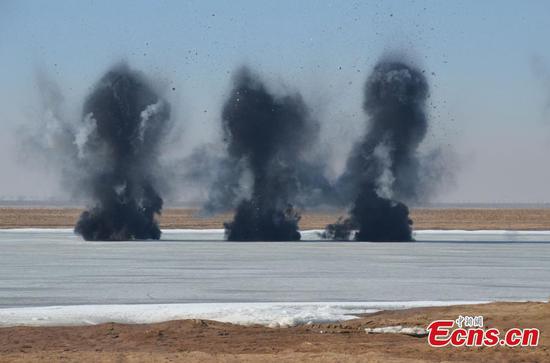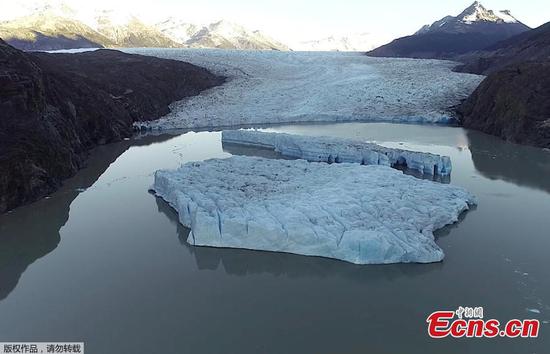Chinese and American scientists in joint research found that the past 30 years are the warmest time in the past 2,000-year period, due to the effect of anthropogenic greenhouse gas.
The scientists were able to read the well-dated and quantitative air temperature record through the research on a sediment core collected at a small alpine lake in subtropical southwest China's Yunnan Province.
The report on the research was published on the March issue of the international journal of Earth and Planetary Science Letters.
The research was carried out by the State Key Laboratory of Lake Science and Environment under the Chinese Academy of Sciences and Columbia University.
In the past 2,000 years, Earth's climate system has transitioned from being forced solely by natural factors to also being forced by anthropogenic greenhouse gases. However, previous to the research, many existing climate records only extend back approximately 1,000 years in some continents.
The sediment samples from Tiancai Lake, located some 4,000 meters above sea level, keep the 2,000-year-long record. The sediment has not been affected by human activities and can reflect multi-centennial-scale temperature fluctuations.
Zhao Cheng, a member of the research team, said the high-altitude region is sensitive to climate changes. Solar radiation and volcanic activities used to be major natural factors affecting the climate. However, during the latter half of the 20th Century, anthropogenic greenhouse gas has become a major cause of the temperature rise.


















































